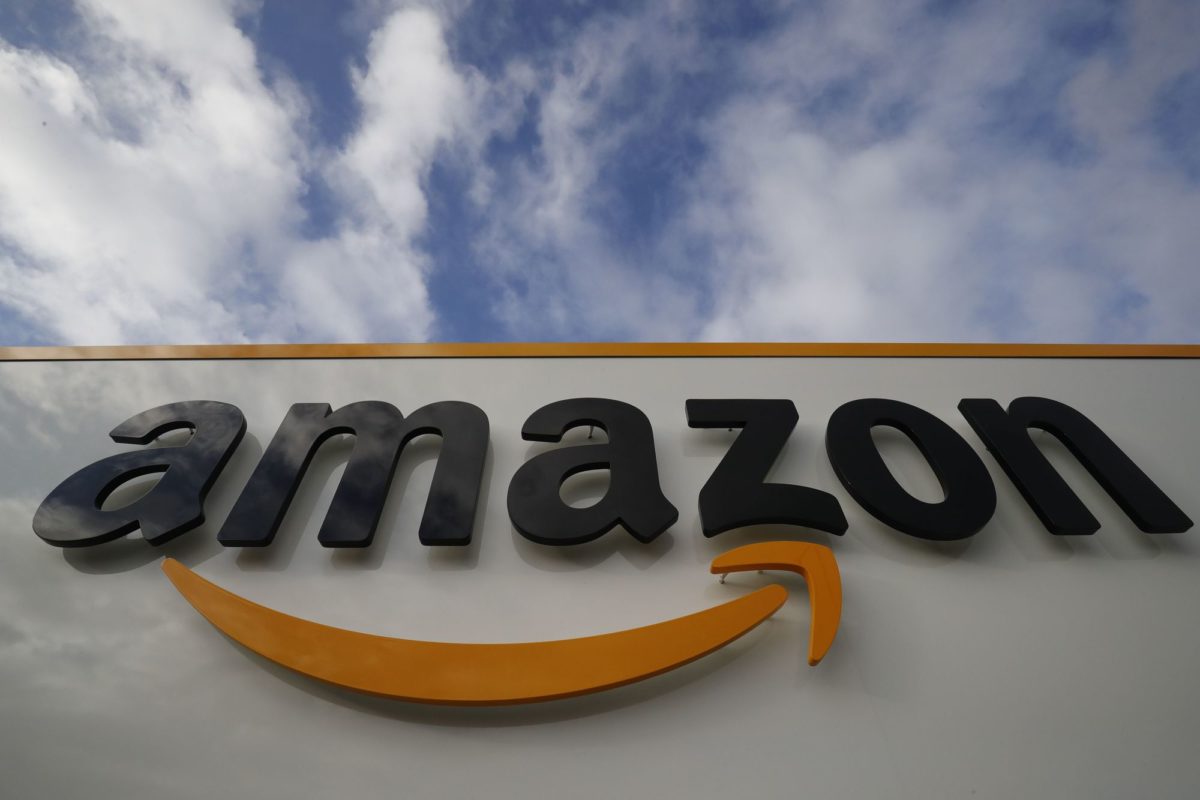
Amazon’s share price is overvalued based on traditional value metrics. The coronavirus outbreak could impact the e-commerce giant’s business and send its stock tumbling. | Image: Thomas SAMSON / AFP
- Amazon has relied on ‘Just In Time’ inventory management to keep its online business profitable.
- The coronavirus outbreak means Amazon will have to spend a lot of money on inventory storage. This will eat into its razor-thin profits.
- Heavy dependence on China will come back to bite.
Online retailer Amazon (NASDAQ:AMZN) sells over a hundred million products. A significant portion of these products are manufactured in China. This heavy reliance means the e-commerce giant has to stay in touch with Chinese manufacturers at all times.
Regular contact with Chinese manufacturers foretold that Amazon would feel the squeeze of supply chain disruption caused by coronavirus before others. Maybe this is the reason Jeff Bezos sold over $4 billion worth of shares in the first 11 days of February.
At the start of February, markets shrugged off all coronavirus fears and moved towards new all-time highs. Amazon even claimed there were no interruptions to its operations amid the epidemic. Yet Bezos was busy dumping Amazon stock.
Coronavirus Means Inventories won’t Arrive ‘Just in Time’ Anymore
Due to readily-available cheap labor and lack of regulations, China has become a stomping ground for global manufacturers. The lack of bureaucracy has almost made Chinese manufacturing extremely efficient. This has allowed Amazon’s sales to skyrocket over the years.
Efficient Chinese manufacturing has aided Amazon sales. | Source: Feedback Express
Due to speedy Chinese manufacturing, most companies buying products from China have relied on the ‘Just In Time’ inventory management strategy. This system increased profits by reducing the cost of inventory storage for all companies.
Since Amazon’s e-commerce business is barely profitable, the lack of storage needs was a boon. The high cost of storing hundreds of millions of products would’ve made the e-commerce business nonviable.
So, the Just In Time inventory management system has been essential for Amazon. But with coronavirus forcing Chinese factories to close down, Amazon is stuck between a rock and a hard place.
Leaked insider emails show that the company is scrambling to build up inventory to “prepare for possible supply chain disruptions due to recent global events originating in China.”
The cost of storing tons of inventories will eat into the razor-thin margins of the company’s e-commerce business. With the stock already trading at sky-high valuations, any drop in profits can make it susceptible to a crash.
Amazon’s Dependence on China will Hurt the Stock
The global supply chain is almost entirely dependent on China. So it’s no surprise that the coronavirus-led supply shock is hurting 94% of the Fortune 1000 companies already.
Supply chain disruption will hurt almost all companies. | Source: Goldman Sachs
The impact on Amazon could be notable worse because of its dependence on Chinese sellers. The share of Chinese sellers on Amazon has been growing over the years.
As per recent estimates, over 40% of Amazon sellers are from China. Reports also suggest hundreds of millions of people are quarantined in China to contain the coronavirus outbreak.
The quarantine is a double whammy for Amazon. Not only will Chinese sellers stop selling, but people will have less disposable income. The outbreak also means a lot of international buyers will refrain from buying Chinese products.
Amazon shares are still priced over $2,000 a pop for a market cap of $998.4 billion. | Chart: Yahoo Finance
Amazon is in a horrible position to deal with a Black Swan event like the coronavirus. Although the stock is already down 10% from all-time highs, it still has a lot of room to fall.
Disclaimer: The opinions expressed in this article do not necessarily reflect the views of CCN.com. The above should not be considered trading advice from CCN.com.
This article was edited by Sam Bourgi.






